Tokyo Motor Show: Are The Japanese Really Back?
Three of the world’s most important auto shows began last week. Since my invitations to the various press events must have been lost in the mail I, like virtually everyone else in the world, followed them over the internet. I’m OK with that, really. I hate fighting the crowds and by the time a show closes high resolution photos of the most important cars are always all over the world-wide-web, anyhow. With the photos are the journalists’ impressions. Some are good and some are bad, but they all make me think. For example, there’s this article from the Top Gear website on the Tokyo motor show that asserts, on the strength of the cars at this year’s show, “Japan is back.” Hold on – Really?
To be sure there were some important and exciting cars at this year’s Tokyo motor show. Honda showed us a new NSX and the S660 sport compact that compares favorably to the Beat kei class sports car that Honda produced back in the last century. Nissan showed us the amazing three-seat, electric “Bladeglider,” a hotted up Nismo GTR and the retro themed IDx. Toyota’s performance car offerings came in the form of the Lexus RC and a convertible FT86. While Toyota ripped the top off of their Toybaru twin, Subaru went the opposite route and gave baby some back with their Cross Sport. So far as I could glean, that was about it for cars intended to stir the hearts and minds of enthusiasts. That would have made for a pretty small show though, so augmenting the really interesting stuff were was a whole slew of hybrid/electric/gas, etc SUVs, sedans and city cars intended to appeal to the masses.
From my perspective what we got are some new toys of the uber rich, two small cars that my all-American ass won’t fit into, a couple of modifications on a car I probably won’t buy anyhow and one wanna-be-retro Nissan that might actually have some possibilities if they don’t screw it up with a powertrain that serious enthusiast wouldn’t want. The emphasis on products with hybrid or alternative energy powertrains and other technical innovations says some good things about state of Japanese industry and the many different body styles on display indicates that the Japanese have noted the success of Korean cars’ design language and are finally looking somewhere other than Mercedes for inspiration, too. Good news for sure, but does any of it mean Japan is back?
For me, the glory days of Japanese cars happened roughly between 1985 and 1995. The cars of that era had good, solid lines and, while the designs weren’t daring, they did have their own unique sense of style. There was technical innovation too and it came wrapped up in practical packages. Real performance was offered across all the price ranges and the variety of new cars was enormous. There was something there for everyone and if you could not afford a Twin Turbo Supra or a Turbo 300ZX, you could, at the very least, take home on of the good looking down-market alternatives: the AE86 Twin-Cam Corolla or the 200SX Turbo. Today, that wide aray of choices is no longer a part of Japan Inc.’s current line-up.
I’m not sure why that is, but in the process of writing this article it suddenly hit me that the cars on display at this year’s Tokyo motor show says something about how our society has become ever more divided over the past couple of decades. It doesn’t take an economist to point out that the rich have gotten richer and the rest of us poorer. The market reflects that reality. The rich get supercars, those of us in the middle get family trucksters and the odd toy while the unwashed masses receive battery powered practicality. The choices are gone and fun is being increasingly reserved for those who can afford it. It wasn’t that ay 20 years ago and the sad truth is that Japan isn’t anywhere close to being back. But then, none of us are, are we?
Thomas Kreutzer currently lives in Buffalo, New York with his wife and three children but has spent most of his adult life overseas. He has lived in Japan for 9 years, Jamaica for 2 and spent almost 5 years as a US Merchant Mariner serving primarily in the Pacific. A long time auto and motorcycle enthusiast, he has pursued his hobbies whenever possible. He also enjoys writing and public speaking where, according to his wife, his favorite subject is himself.
More by Thomas Kreutzer
Latest Car Reviews
Read moreLatest Product Reviews
Read moreRecent Comments
- Michael Smith I drive 100-300 miles a day in new BMWs, Mercedes-Benzes, and GM SUVs. Some are already equipped with automatic braking.It's the first thing I turn off when I start the car.I've had experiences where (as the author notes) the system gave false alarms and stabbed the brake pedal, threatening my ability to control the car.Further, every driver encounters situations where, for example, legal following distance must be momentarily compromised in order to avoid a difficult situation. When the system intervenes, it disrupts the driver's plan of action. This can lead to a collision as the driver has to suddenly react not to his surroundings, but to the system.Not only is automatic braking an insult to skilled drivers, it's dangerous to everyone.
- Bd2 Dark Brandon is doing a great job for the US. I hope he can run for a third term.
- Dave M. My hipster daughter is greatly into it. We watched the race together this weekend. It was interesting but I'm not devoted to it like she is. She'll be at the Austin race in October.
- Bd2 If I had time to watch other people driving, then I would go for LMP.
- Steve Biro There are 24 races on this year’s F1 schedule. And I guarantee you no more than two will be reasonably exciting, Meanwhile, F1’s reception for Andretti reveals the dark underbelly of the sport. I have followed F1 since the 1960s and, frankly, I am running out of interest. I’ll catch a race if it’s convenient but won’t bother DVRing them.



















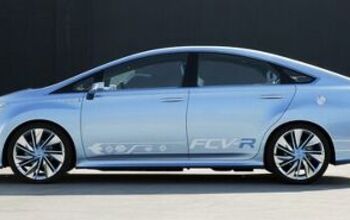
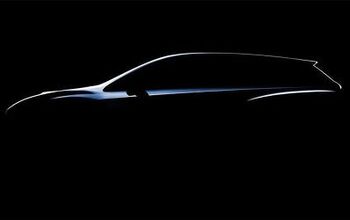
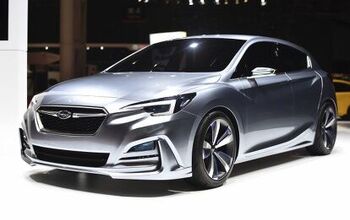
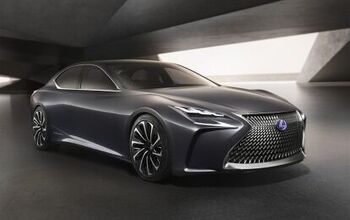
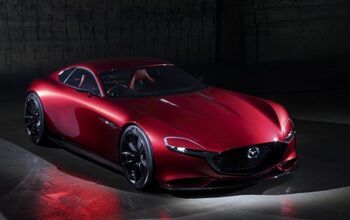










Comments
Join the conversation
Dear author, what tripe; the "rich get richer and we the poor get poorer". Perhaps Unions, fairness, and buying Jap cars have gotten us where we are now. Perhaps a real Government job, is in order, besides media...at least it pays better.
With the new car offerings now days I'd be very hard pressed to buy a new Japanese one and at this point in my life I can afford a lot of car. Honda is making their take of Camry and Corolla, while everyone else tries to copy those two in my mind. Just mindless sea of SUVs and hybrids. I'll be holding on to my '08 Legacy GT for quite a long time.